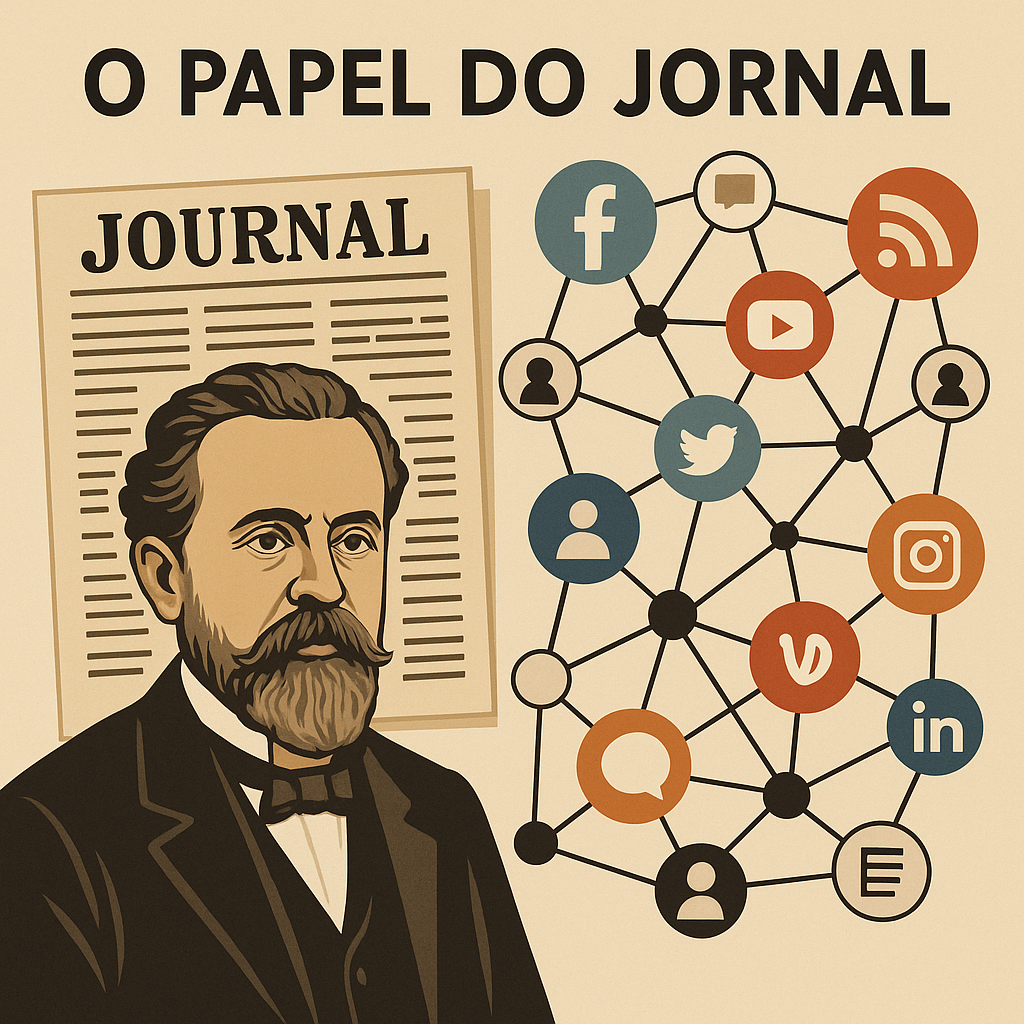Qual é a sua impressão de uma marca chamada Brasil?
depoimento para http://100degreesofbrazil.wordpress.com/
(English version below)
O Brasil profundo e sua marca estão emergindo graças à rede
Em relação ao mundo contemporâneo, vejo uma encruzilhada quando penso o Brasil. Somos a 8ª economia do mundo, houve um significativo processo de ascensão social desde que o governo Fernando Henrique Cardoso acabou com perverso processo inflacionário, com o qual convivemos dezenas de anos, e deu fundamentos para a economia. Lula e sua sucessora Dilma se beneficiaram disso e ampliaram as políticas sociais, mas menosprezaram a obrigação de continuar as reformas necessárias para conquistarmos um crescimento orgânico. E todos os brasileiros estão pagando por isso, como ficou claro nas manifestações e protestos por todo o país neste mês de julho.
Existe algum paradigma, alguma visão para a Humanidade?
alvin toffler
Entendo que vivemos uma crise global. O Estado nacional, os partidos políticos, as instituições que regulamentam as relações globais ficaram velhos para os desafios que tempos pela frente. A globalização, predicava Nicholas Negroponte anos atrás, privilegia antes de tudo o ‘glocal’. E argumentava: ‘Hoje, é óbvia a tendência de a internet modificar o papel que as pessoas exercem, mesclando a separação entre vendedor e consumidor, entre editor e leitor. Todas as coisas digitais são grandes e pequenas ao mesmo tempo – um paradoxo, não uma contradição. Redes descentralizadas irão substituir hierarquias, e os controles centrais serão substituídos por sistemas auto-organizáveis que se parecerão muito mais com a relação entre o homem e a natureza do que com relações institucionais.’
A cultura, e consequente organização social, política e econômica dominante na sociedade contemporânea, ainda é aquela que começou a nascer no século 16, quando um conjunto de inovações tecnológicas num contexto histórico favorável contribuiu para o início do enterro do Antigo Regime, no qual a Terra estava no centro do universo, a ordem social era imutável e a Igreja, junto com o poder absolutista, tinha o monopólio da informação.
A prensa de Gutenberg estava entre as inovações tecnológicas que contribuíram para a ascensão do mundo burguês. E os seus principais produtos – o livro e o jornal – foram entendidos durante muitos anos pela ordem dominante como ferramentas subversivas. Esta subversão gestou e gerou o mundo em que vivemos. Um mundo onde a iniquidade social ainda incomoda e assusta, mas no qual todas as barreiras para a geração de riqueza e de conhecimento foram derrubadas, num processo que também gerou a onda de inovação que estamos vivendo e a possibilidade de darmos o próximo salto.
Pela primeira vez na história desde a revolução industrial, como nota Yochai Benkler, os meios básicos de criação de informação, conhecimento e cultura estão nas mãos da maioria da população do planeta. Nos últimos anos ocorreu uma radical descentralização destes meios. Com isso, tivemos uma radical descentralização dos processos de inovação, tivemos grande descentralização da criatividade, tivemos uma radical descentralização da participação democrática. Você não precisa mais ser dono de um jornal ou rádio nem fazer parte dos afortunados para participar da política, como aponta Yochai Benkler.
Os tremendos e revolucionários impactos da internet na sociedade
yochai benkler
É este contexto que me faz ser otimista em relação a um futuro que não vou ver. E especialmente otimista em relação ao Brasil. Somos um país continental, sofremos colonização de todas as partes do mundo e soubemos nos abrir a este processo miscigenando raças e culturas de uma forma razoavelmente harmônica. Vivemos nas grandes cidades, que estão no olho do furacão, tensos com o início desta revolução promovida pela internet, a web, a rede. Tensos com a imaturidade do processo e o conflito entre o novo e o velho, entre a economia industrial e a nova economia, que por enquanto destrói empregos no chão de fábrica e agora em setores que usam a inteligência: jornalismo, medicina, advocacia, educação etc.
Mas se o processo não for abortado ou atrasado pelas empresas de telecomunicações, que tem o monopólio do acesso à nova infraestrutura da sociedade, vamos criar com certeza um novo mundo, com novos fundamentos e referências sobre a relação capital trabalho, novos fundamentos e referências sobre os processos políticos, novos fundamentos e referências sobre os processos de produção de informação, conhecimento, cultura, bens de consumo e riqueza.
O Brasil não é um continente envelhecido olhando o seu passado, não é os países asiáticos disciplinados pela miséria e não é os países do Norte da América estressados por dezenas de anos liderando a revolução industrial e seu processo de inovação, que fomentou e construiu a infraestrutura do futuro: a internet, a web, a rede. São nas pequenas cidades do interior do Brasil, nos confins das muitas regiões de florestas nativas e nos nossos sertões que estão as raízes dos brasileiros. Quando todos forem inseridos na sociedade do conhecimento e participarem do processo, ofereceremos ao mundo um novo mundo, transformando e revigorando a marca Brasil e a forma como nos vêm lá fora, num mundo no qual o nacionalismo tenderá a desaparecer.
O Brasil dos confins, das periferias, das pequenas cidades
ditão virgílio, o saci e as chuvas.
São pessoas simples que trabalham o seu dia a dia sem as infinitas perspectivas dos centros do mundo. Eles, os habitantes das periferias, das pequenas cidades, das comunidades da amazônia, os caiçaras, os índios, a maioria dos brasileiros agregarão outros valores e seus humores aos processos institucionais da nossa sociedade. Será um mundo mais aberto, fluido e oxigenado. E a marca Brasil refletirá o seu povo, com o seu colorido, com o seu folclore, com a sua música, com a sua diversificada cultura, as suas praias paradisíacas, as suas florestas misteriosas. Com cordialidade, disposição de conviver com o controverso, sua esperança e frustrações: a marca Brasil dos Confins.
What is your impression about a brand called Brazil?
testimony to http://100degreesofbrazil.wordpress.com/
The deep Brazil and its brand are emerging thanks to the network
In relation to the contemporary world, I see a crossroads when I think of Brazil. We are the eighth economy in the world, there has been a significant social ascension process since Fernando Henrique Cardoso’s government ended with the perverse inflationary process, which we lived with for dozens of years, and gave grounds for the economy. Lula and his successor, Dilma, were benefited with that and expanded the social policies, but despised the obligation to continue the necessary reforms to achieve organic growth. And all Brazilians are paying for it, as it became clear during the demonstrations and protests throughout the country this July.
Is there any paradigm, any vision for humanity?
alvin toffler
I understand we live a global crisis. The national State, the political parties, the institutions that govern the global relations got old to the challenges that we will face ahead. The globalization, Nicholas Negroponte used to say years ago, emphasizes above all the “glocal” (global + local). And he argued: “Today, the trend is obvious from the Internet to change the role that people exercise, combining the separation between seller and consumer, between publisher and reader. All digital things are large and small at the same time – a paradox, not a contradiction. Decentralized networks will replace hierarchies and central controls will be replaced by self-organizing systems that will seem much more with the relationship between man and nature than with institutional relations.
The culture, and the consequent social, political, and economic organization dominant in the contemporary society, is still the one that started at the 16th century, when a set of technological innovations in a favorable historical context contributed to the beginning of the burial of the old Regime, in which the Earth was at the center of the universe, the social order was immutable and the Church, along with the absolutist power, had the monopoly of information.
The Gutenberg’s press was among the technological innovations that have contributed to the rise of the bourgeois world. And its main products – the book and the newspaper – have been understood for many years by the dominant order as subversive tools. This subversion nurtured and created the world in which we live. A world where social inequity still bothers and scares, but in which all barriers to the generation of wealth and knowledge were torn down, in a process which also generated a wave of innovation that we are living and the possibility to take the next leap.
For the first time in history since the industrial revolution, as Yochai Benkler notes, the basic means of creating information, knowledge and culture are in the hands of the majority of the world population. In recent years there has been a radical decentralization of these means. With that, we had a radical decentralization of innovation processes, a great decentralization of creativity, a radical decentralization of democratic participation. You no longer need to own a newspaper or a radio or be part of the “fortunate ones” to participate in politics, as Yochai Benkler says.
The tremendous and revolutionary impacts of the Internet on society
yochai benkler
It is this context that makes me optimistic about a future that I will not see. And I’m especially optimistic about Brazil. We are a continental country, we suffered colonization from all parts of the world and we knew how to open ourselves to this process mixing races and cultures in a reasonably harmonious manner. We live in big cities, which are in the eye of the hurricane, tense with the beginning of this revolution promoted by the internet, the web, the network. We are tense with the immaturity of the process and the conflict between the new and the old, between the industrial economy and the new economy, which so far destroys jobs on the factory floor and now in sectors that use intelligence: journalism, medicine, law, education, etc.
But if the process is not terminated or delayed by telecommunication companies, that has a monopoly on access to the new infrastructure of society, we will certainly create a new world, with new foundations and references on the capital-work relation, new foundations and references on political processes, new foundations and references on production processes of information, knowledge, culture, consumer goods and wealth.
Brazil is not an aged continent looking at its past, it is not the Asian countries disciplined by misery and it is not the countries from North America stressed for dozens of years leading the industrial revolution and its innovation process, which fostered and built the infrastructure of the future: the internet, the web, the network. It is in the small cities in the interior of Brazil, in the wilds of the many regions of native forests and in our hinterlands that are the roots of the Brazilians. When all is inserted in the knowledge society and participating in the process, we will offer the world a new world, transforming and reinvigorating the “brand Brazil” and how they see us out there (abroad), in a world in which nationalism will tend to disappear.
Brazil of the confines, the peripheries, the small towns
ditão virgílio, o saci e as chuvas.
They are simple people who work their day to day without the infinite perspectives of the centers of the world. They, the inhabitants of the suburbs, small towns, the communities of the Amazon, the native population, the Indians, most Brazilians will add other values and their moods to the institutional processes of our society. It will be a more open, fluid and oxygenated world. And the “brand Brazil” will reflect its people, with its colorful, with its folklore, with its music, with its diverse culture, its heavenly beaches, its mysterious forests. With friendliness, with willingness to live with the controversial, its hopes and frustrations: the “brand Brazil” of the Confines.
rodrigo mesquita



Deixe uma resposta